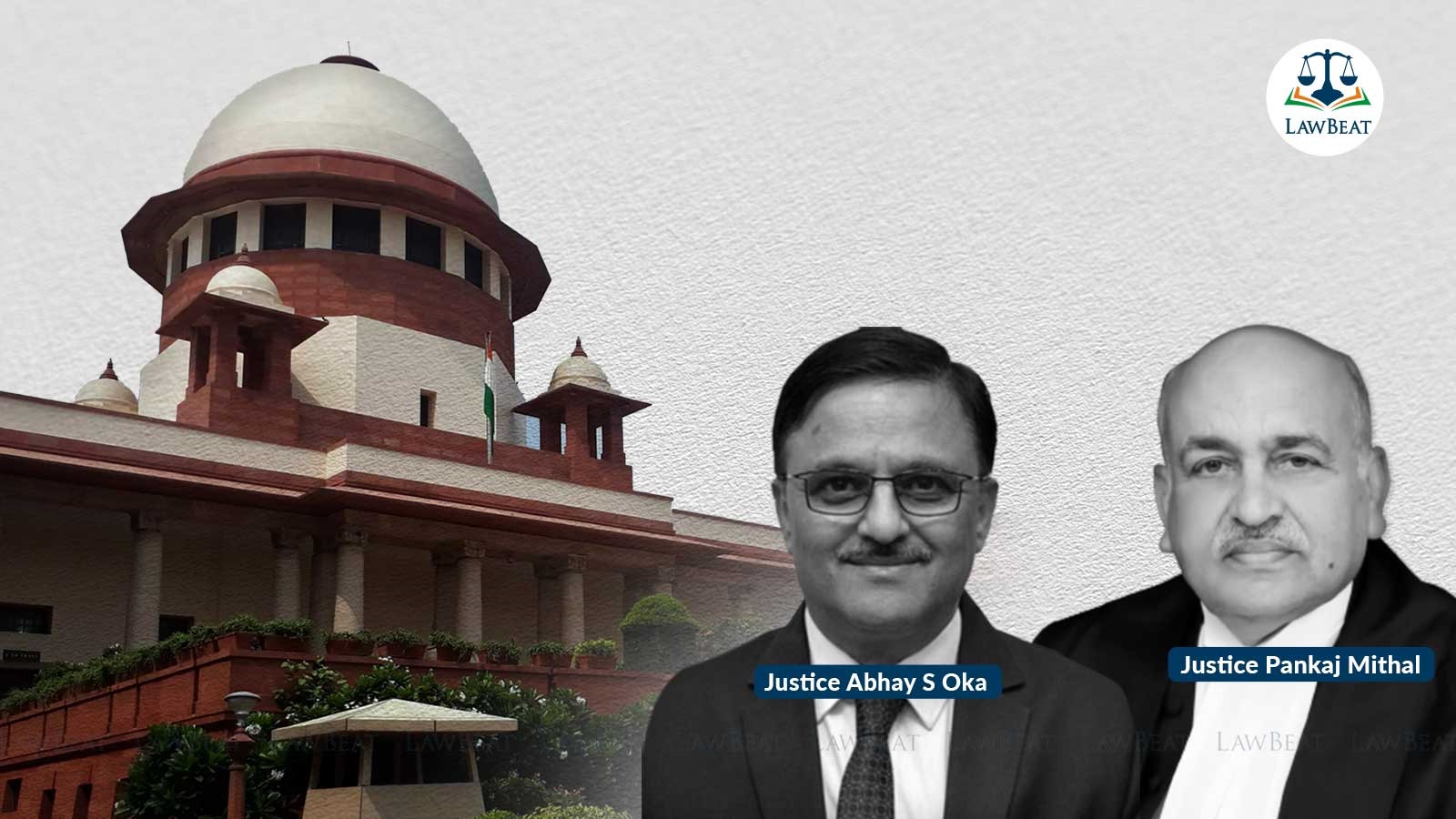'Accused has right to cross examine witnesses,' SC upholds acquittal as relevant questions were disallowed

The Supreme Court has said an accused has a right to cross-examine a prosecution witnesses and disallowing relevant questions to be put to them also projected as independent witnesses, causes serious prejudice to the defence.
A bench of Justices Abhay S Oka and Pankaj Mithal rejected a contention that there was no prejudice caused to the accused by not permitting certain questions to be put to prosecution witness number one and, secondly, even if, there is a prejudice, the evidence can not be discarded.
The court dismissed an appeal filed by the deceased's son, Chandrasekhar Patel against acquittal of Suresh and others by the High Court in the case related to murder of Siddhanth Patel on March 6, 1996.
"We have no manner of doubt that the ultimate conclusion recorded by the High Court that the guilt of the accused was not established beyond a reasonable doubt, is certainly a plausible conclusion which could have been arrived at on the basis of the evidence of the prosecution. This is our view after carefully scrutinising the evidence of the material prosecution witnesses," the bench said.
Senior advocate Sanjay R Hegde for the appellant contended only possible view was that the prosecution has established that the respondents have committed the offence. Advocate Shreeyash U Lalit, for the State in support of the order passed in the appeal.
The court, however, said when an appellate court deals with an appeal against an order of acquittal, it is no doubt true that it has to re-appreciate the evidence of the prosecution witnesses. After re-appreciating the evidence on record, the appellate court has to examine whether the court which passed the order of acquittal, on the basis of the same evidence, could have recorded a finding of acquittal.
"In other words, the appellate court has to examine whether the finding recorded by the court acquitting the accused is a possible finding, which could have been arrived at on the basis of the evidence on record. If the answer to this question is that the view taken by the court which acquitted the accused is a possible view taken on the basis of the evidence on record, only because the appellate court is of the opinion that a contrary view is also possible, it cannot interfere with the order of acquittal. The reason is that the presumption of innocence is further strengthened by the acquittal of the accused," the bench said.
After independently analysing and appreciating the evidence of the prosecution witnesses, the bench found that during the cross-examination, the trial court has disallowed several questions.
"We are of the view that several material questions, which were very relevant, were not allowed to be put to the witness. This will certainly cause prejudice to the accused. These questions were put with the object of showing that the version of the witness was not truthful. The questions were put with the object of proving that the prosecution case was doubtful," the bench said.
The court noted certain material questions, which were very relevant, were not allowed to be put to the witness.
"We cannot imagine what would have been the answers given by the witness had those questions been allowed to be asked. If the questions would have been allowed, there was a possibility that the answers might have been relevant to discredit the other witnesses," the bench said.
"An accused has a right to cross-examine a prosecution witness....not allowing the relevant questions to be put to the eye-witness, who is stated to be the independent witness, causes serious prejudice to the defence of the accused. It is too late in the day now to remand the case to the trial court for further cross-examination of the said witness because a period of 27 years has elapsed from the date of the incident," the bench added.
The court found that there were several doubts created which raised a question mark about the truthfulness of the version of prosecution witnesses, which was coupled with the fact that though the independent witnesses were present, even an attempt was not made to record their statements.
The court, thus, dismissed the appeal, saying no interference is called for with the judgment of acquittal.
